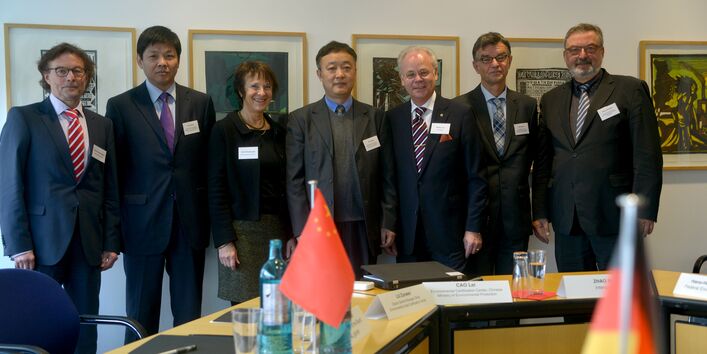“Blue Angel” cooperating with eco-labels in China and Japan
The Blue Angel, Germany’s oldest and most well-known eco-label, is now entering the international stage. In future it will cooperate with eco-labels in China and Japan. This has been laid down in agreements signed between the holders of the eco-labels today in Berlin in the margins of an international conference on the role of eco-labels on global markets. The goal of the agreements is to achieve broad harmonisation of award criteria for the respective national labels and to support manufacturers in making applications.
A key aspect of this cooperation is mutual recognition by certification bodies. This will make it easier for product manufacturers to apply for the eco-label in the respective partner country. For example, they will be able to apply for eco-labels in their own language. Japanese and Chinese companies will have an incentive to apply for the German Blue Angel label for their products and vice versa. If a German company wishes to sell its products on the Chinese market and use the Chinese label, in future it will be able to submit its application for the Chinese label to RAL gGmbH, Germany’s certification body for the Blue Angel.
Federal Environment Minister Barbara Hendricks: “Especially for German companies operating globally that want to use the labels of the respective target markets, the different national award criteria are a major hurdle: in addition to the varying label requirements, there are often language problems to deal with when submitting an application. Strengthening cooperation between our Blue Angel and international labelling systems will eliminate these hurdles.”
Maria Krautzberger, president of the Federal Environment Agency (UBA), stressed the importance of consumer information for global trade in goods: “This gives Blue Angel products an export advantage. German companies can now highlight the quality of their products more clearly in China and Japan using the national eco-labels. The same applies to Chinese and Japanese products on the German market. Their high environmental standards will now become more visible for consumers.” The Blue Angel is currently awarded for 12,000 products in 120 product categories.
The number of product labels on the market aimed at showing consumers the environmental and sustainability merits of a product has been growing for years. According to the international Ecolabel Index there are current almost 500 different sustainability labels.
